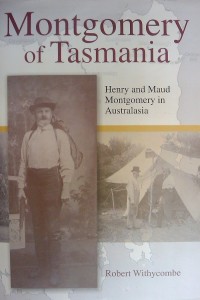Looking beyond the frailties of the Christmas festivities to the beauty and truth that it obscures.
We eagerly watched the evening television news. Would the presentation of the ‘reason for the season’ in the Hobart Christmas parade be on the television? We had been told that the Combined Churches’ presentation may have won an award.
The Churches’ presentation was extensive, being led by Mary, baby Jesus and Joseph on a donkey, children dressed as angels and shepherds, followed by more children dressed as parcels and then came a big parcel mounted on a utility, with the words, ‘The best present of all is Jesus’.
Had we won a prize? More importantly, was there footage and commentary on the birth of Jesus as presented by the Churches’ float? Depending on the media we neither heard nor read of the Churches’ float, nor of an award, let alone of Jesus, ‘the best present of all’.
Why is it that we so often overlook truth and beauty?
Is it our human frailty? The frailty that even at our best moments senses the good but somehow smothers it?
I am reminded of the overtaking lanes that pop up every so often on the Midlands Highway. These lanes are a good idea.
They allow vehicles to pass slower vehicles in safety, as the single lane opens up a second overtaking lane. The question is, ‘Does this system of safe overtaking work effectively?’ Sadly, it often does not.
But why is this? As any Tasmanian who drives the Midlands Highway will tell you, ‘Because the slow vehicles speed up when they get to the overtaking lane. You then have to break the speed limit to get past them!’
The frailty of our human nature dampens the opportunities for good; for building community and discovering truth and beauty.
At the Cathedral
After vainly watching the television to see the Combined Churches’ presentation in the Hobart Christmas parade, ‘The best present of all is Jesus’, I decided to forget the frailties of people and to look beyond them to the beauty and truth of the gift of love; the Baby of Bethlehem.
Why, that very afternoon in the Cathedral, in the street where the parade paraded, four followers of the Baby whose birth Christmas celebrates, had responded to the call of God to ordained ministry.
There had been nervousness, expectation, joy, humour, a noisy mob on a bus from Ulverstone, processions, pageantry, prayer, praise and applause – a Cathedral celebration of God’s goodness and grace to his people. What joy!
Yes, Lord Jesus. Help me to look beyond the frailties of the annual Christmas Parade to the beauty and truth that it seems to obscure.
Help me to see the Baby in the cradle.
Help me to see the anxious young peasant mother and unsure husband, with those shepherds on the margins of society and yet to whom the heavenly chorus sang, ‘Glory to God in the highest heaven, and on earth peace among those whom he favours!’
Help me to look beyond the frailties of the annual Christmas season to the beauty and truth that started it all, the Baby who is Emmanuel, God with us.
‘The best present of all is Jesus’.
More reading from our Diocesesan Magazine here December 2009 ‘Tasmanian Anglican’.

